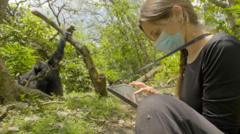Health programs across the globe are facing severe disruptions as funding freezes impact the delivery of vital medical services and ongoing research amidst a 90-day halt on U.S. foreign aid.
Global Health Crisis: Foreign Aid Pause Halts Lifesaving Initiatives Worldwide

Global Health Crisis: Foreign Aid Pause Halts Lifesaving Initiatives Worldwide
Trump administration's foreign aid suspension triggers shut down of critical health programs, endangering millions.
Amid rising health crises, programs vital for treating diseases such as tuberculosis, malaria, and H.I.V. are experiencing unprecedented interruptions due to a recent 90-day pause imposed by the Trump administration on foreign aid. This freeze has led to the suspension of numerous lifesaving initiatives and clinical trials that are crucial for the health of millions around the globe.
In Uganda, for instance, the National Malaria Control Program, directed by Dr. Jimmy Opigo, has halted insecticide spraying in communities and suspended the distribution of mosquito nets intended for vulnerable populations, including pregnant women and young children. Similarly, in Zambia, critical medical supplies—including drugs to manage hemorrhages in pregnant women and rehydration salts for children suffering from severe diarrhea—have been stuck in transit due to funding issues with trucking companies that previously transported these necessary items.
The impact of this funding break is profound, as dozens of clinical trials have been thrown into disarray across South Asia, Africa, and Latin America. Thousands of participants enrolled in these studies now find themselves receiving inconsistent treatment, with essential drugs, vaccines, and medical devices placed inside their bodies but without access to the researchers who were initially supervising their care.
In interviews, over 20 program managers and researchers recounted the overwhelming turmoil facing health systems in developing nations. Many requested anonymity for fear of retribution, illuminating the distressing scenarios unfolding in their communities. Emotional accounts reflected the sudden collapse of decades of public health advancements, stirring concern for the future of these critical health initiatives worldwide. As health practitioners grapple with the fallout, the lives of countless individuals hang in the balance, underscoring the urgent need for the reinstatement of funding and support to combat these escalating public health emergencies effectively.
In Uganda, for instance, the National Malaria Control Program, directed by Dr. Jimmy Opigo, has halted insecticide spraying in communities and suspended the distribution of mosquito nets intended for vulnerable populations, including pregnant women and young children. Similarly, in Zambia, critical medical supplies—including drugs to manage hemorrhages in pregnant women and rehydration salts for children suffering from severe diarrhea—have been stuck in transit due to funding issues with trucking companies that previously transported these necessary items.
The impact of this funding break is profound, as dozens of clinical trials have been thrown into disarray across South Asia, Africa, and Latin America. Thousands of participants enrolled in these studies now find themselves receiving inconsistent treatment, with essential drugs, vaccines, and medical devices placed inside their bodies but without access to the researchers who were initially supervising their care.
In interviews, over 20 program managers and researchers recounted the overwhelming turmoil facing health systems in developing nations. Many requested anonymity for fear of retribution, illuminating the distressing scenarios unfolding in their communities. Emotional accounts reflected the sudden collapse of decades of public health advancements, stirring concern for the future of these critical health initiatives worldwide. As health practitioners grapple with the fallout, the lives of countless individuals hang in the balance, underscoring the urgent need for the reinstatement of funding and support to combat these escalating public health emergencies effectively.





















